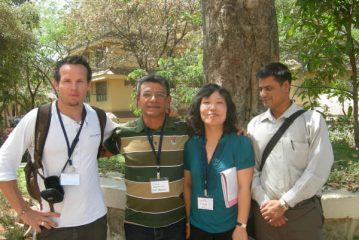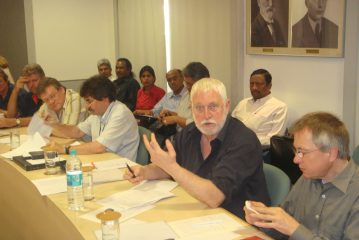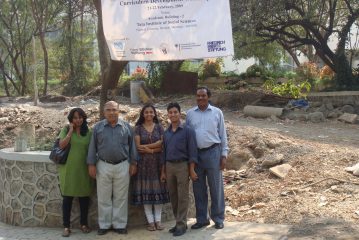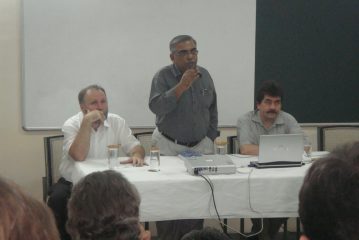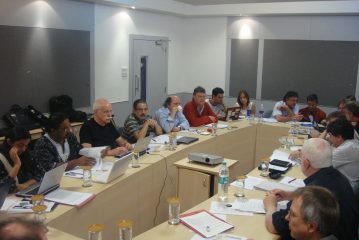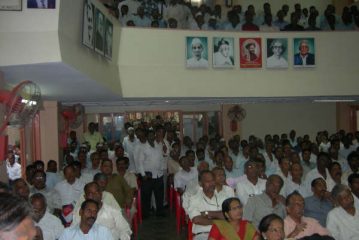V GLU CONFERENCE
Financialisation of Capital – Deterioration of Working Conditions
The 2008 ILO Declaration on Social Justice for a Fair Globalisation urges a shift in global policies to achieve Social Justice and Decent Work. The Declaration calls to examine and consider all international economic and financial policies in the light of the fundamental objective of social justice. At the GLU annual conference in 2009 trade unionists and scholars are invited to present papers and discuss the challenges for organised labour.
about the conference
Background:
The conference will focus on two main topics:
1) Global capital mobility and its impact on wages and employment conditions.
The desire of enterprises to maximise profit has not changed over time. Nevertheless, enterprise behaviour has changed dramatically over the last decades. Aggressive short term profit maximization by financial investors is a key feature of this new environment. Despite some impressive campaigns and organizing successes trade unions were not able to defend successfully workers’ interests against these new structural forces. Informal and precarious employment is on the rise, concessions of workers in regular employment are widespread and inequality is growing. Hopes, voluntary corporate social responsibility could make a fundamental difference, evaporated under the heat of global competition. Increasingly the debate refocuses on the role of states and (global) hard law to reign in global capital markets.
2) Extending rights and collective bargaining to workers in precarious and informal employment. Global companies and the global financial industry have been successfully influencing decision making on a national and international level to shape legislation and global rules in favour of individual and common business interests. The demand for immediate high returns from financial investors and the inability to raise prices in a competitive environment do result in massive pressure on wages and working conditions. Millions of workers are not protected by law or collective agreements. They are forced to accept precarious or informal employment.
Civil society groups including trade unions are becoming more global to defend their interest as workers and citizens against the highest rates of return on private investment as the guiding principle of global policymaking. This requires innovative approaches to organizing and changes in institutions and regulations to readjust the balance of power between private business interest and society at large in particular as transparent and accountable democratic decision making has in many cases been substituted by lobbyism and supranational bodies that lack democratic control and legitimacy.
Event Facts
V GLU CONFERENCE
Download Info Materials
Download call for papers
Learn more about the conference theme
Download the full conference programme
CONFERENCE PAPERS
by Camila Gripp
by Li Deqi & Yang Hanping
by Engelbert Stockhammer
by Ângela Tepassê, Francine Modesto dos Santos, Lílian Arruda & Vicente Gomes Macedo Neto
by Dithhi Bhattacharya
by Jennifer Cohen
by H. Lotta Takala-Greenish
by Christoph Scherrer
by Aelim Yun
by Trevor Evans
by Narumol Nirathron
by Seeraj Mohamed
by Sean Sweeney
by Bino Paul
by Helen Schwenken
by José Ricardo B. Gonçalves, José Dari Krei and Maria Alejandra C. Madi
by Heather L. Taylor
by Hansjörg Herr
by Alexandre de Freitas Barbosa
by Paliani Chinguwo
by Daniel Hawkins
by Özlem Onaran
by Debdulal Saha
by Babu P. Remesh
by Michael Fichter
by Aishwarya Singh & Vinay Tyagi
by Andranik Tangian
by Rahmat Omar
by Andrew Watt
by Kóláwolé Emmanuel Omomowò
by Julie Froud, Sukh Johal, Adam Leaver, Karel Williams
by Premilla D’Cruz & Ernesto Noronha
by David Bensman & Xiong Jun
CONTACT US
Conference Director:
Dr. Sharit K. Bhowmik
Professor and Dean
School of Management and Labour Studies
Tata Institute of Social Sciences
Tel: +91-22-2552 5800
Conference Coordinators:
Ms. Indira Gartenberg
Mr. Debdulal Saha
Mobile No.: +91-98194 61819
Conference Secretariat:
School of Management and Labour Studies
Tata Institute of Social Sciences
V.N. Purav Marg, Deonar
Mumbai-400 088, India
Website: www.tiss.edu
